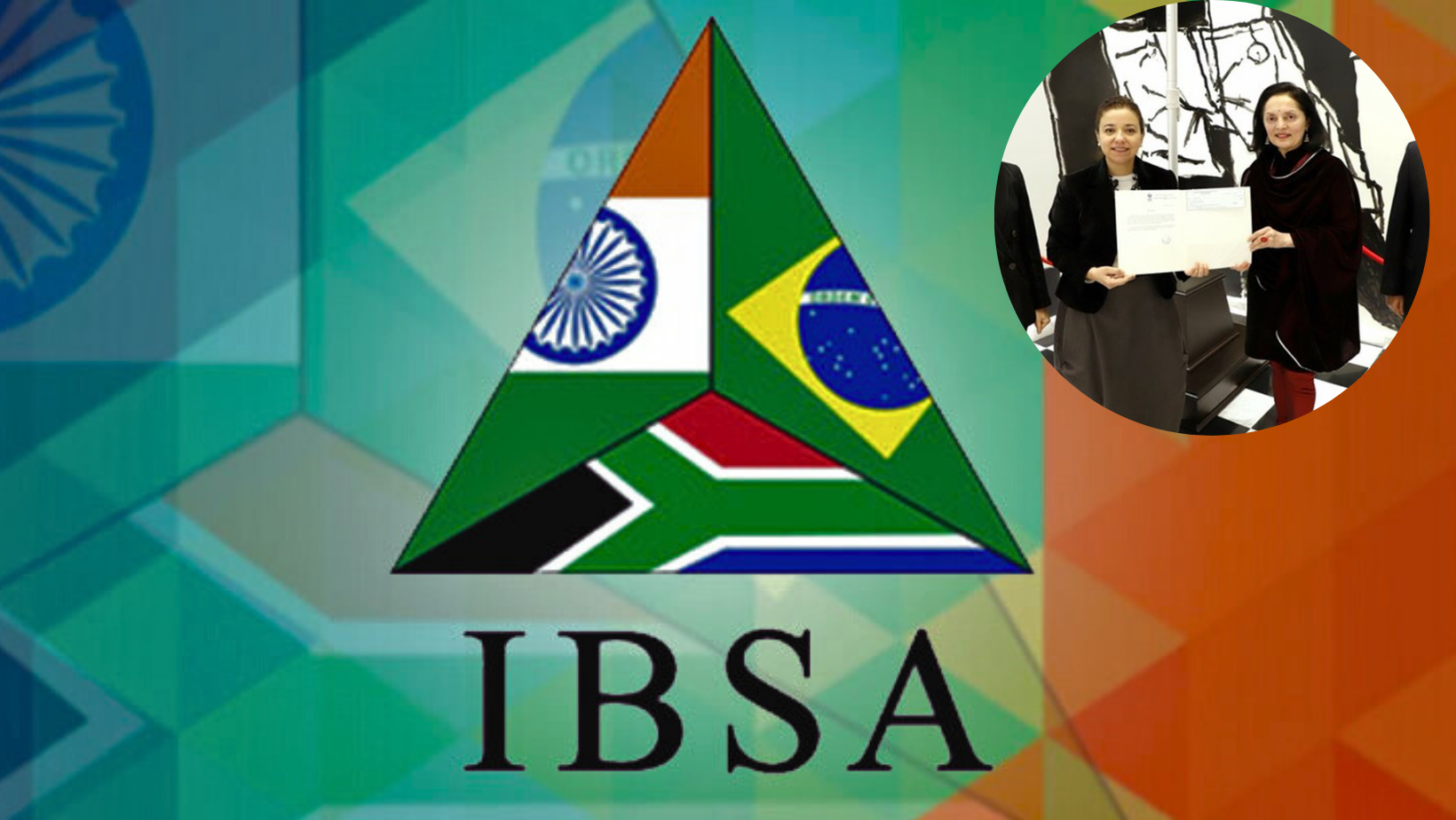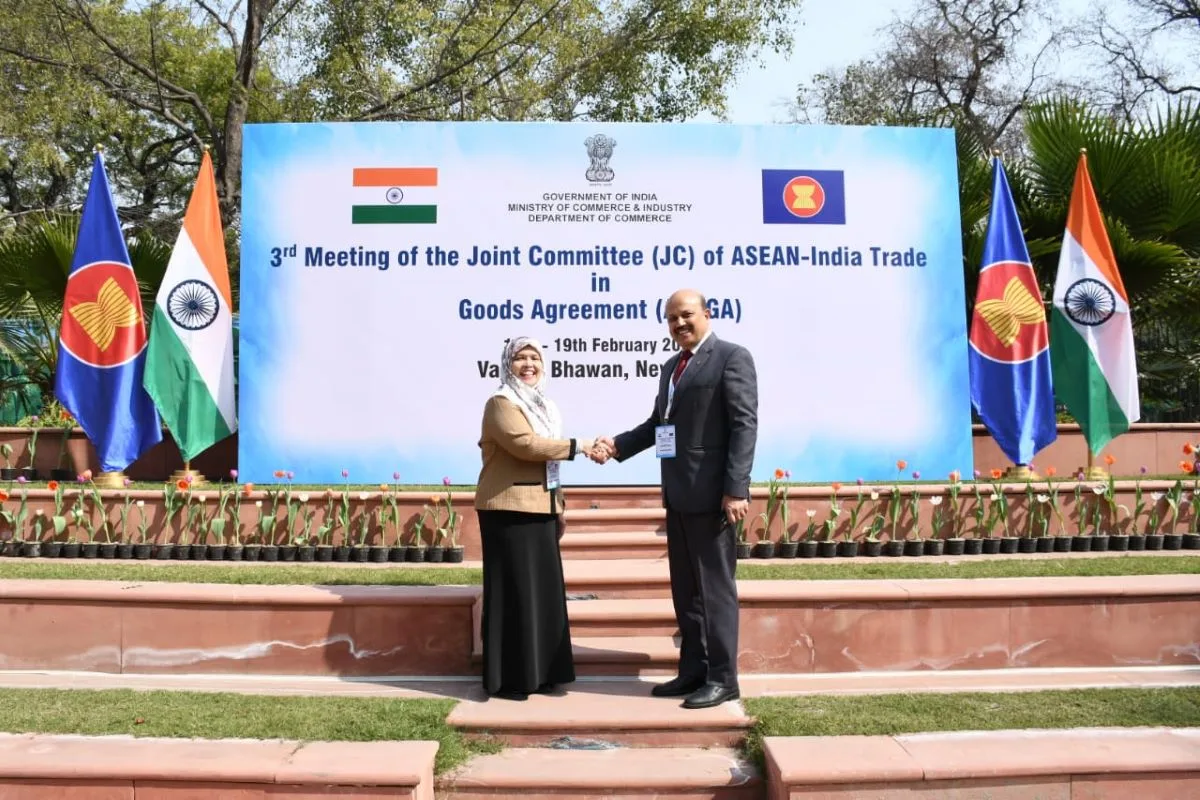India contributes $1 million to fund combating poverty and hunger

- 21 Feb 2024
Why is it in the News?
Recently, India has contributed 1 million US Dollars to the Poverty and Hunger Alleviation Fund established by India, Brazil, and South Africa, IBSA.
What is the IBSA Fund?
- Established in 2004 and operational since 2006, the IBSA Fund embodies the collaborative efforts of India, Brazil, and South Africa.
- Contributing one million dollars annually each, the IBSA countries unite in a spirit of partnership to champion Southern-led, demand-driven projects in developing nations.
- With a focus on identifying replicable and scalable initiatives, the fund aims to address pressing development challenges in recipient countries.
- Supported projects align with partner countries' national priorities and international development agendas, including the Sustainable Development Goals (SDGs).
- The fund's objectives encompass diverse areas such as promoting food security, combating HIV/AIDS, and expanding access to safe drinking water, among others, to advance sustainable development.
- To date, the IBSA Fund has allocated USD 50.6 million, funding 45 projects across 37 countries in the Global South.
- The United Nations Office for South-South Cooperation (UNOSSC) fulfils the roles of Fund Manager and Secretariat for the IBSA Fund.
What is IBSA?
- IBSA stands for the India, Brazil, and South Africa Dialogue Forum, a unique platform that unites three major democracies and significant economies from diverse continents, collectively addressing common challenges.
- Formally established as the IBSA Dialogue Forum during a historic meeting of the Foreign Ministers from India, Brazil, and South Africa in Brasilia on June 6, 2003, the forum's inception was marked by the issuance of the Brasilia Declaration.
- To date, five IBSA Leadership Summits have been convened, with the 5th Summit held in Pretoria on October 18, 2011.
- In 2021, India held the chairmanship of IBSA under the theme "Democracy for Demography and Development."
- On March 2, 2023, Brazil assumed the rotating presidency of the India, Brazil, South Africa Dialogue Forum (IBSA), further advancing the forum's collaborative agenda.
India, and ASEAN discuss the review of the trade agreement

- 20 Feb 2024
Why is it in the News?
India hosted the 3rd meeting of the AITIGA Joint Committee, which focused on reviewing the ASEAN-India Trade in Goods Agreement at Vanijya Bhawan in New Delhi from February 16th to 19th, 2024.
About the ASEAN-India Trade in Goods Agreement (AITIGA):
- The ASEAN-India Trade in Goods Agreement (AITIGA) is a trade deal between the ten member states of ASEAN and India.
- ASEAN and India signed the Agreement at the 7th ASEAN Economic Ministers-India Consultations in Bangkok, Thailand in 2009.
- The Agreement, which came into effect in 2010, is sometimes referred to as the ASEAN-India Free Trade Agreement.
- The Agreement originated out of the Framework Agreement on Comprehensive Economic Cooperation between India and ASEAN created in 2003.
- The Framework Agreement laid a sound basis for the establishment of an ASEAN-India Free Trade Area (FTA), which includes FTA in goods, services and investment.
- The Agreement has led to steadily increasing trade between ASEAN and India since its signing.
- In 2019-20, trade between India and ASEAN was worth US$86 billion.
About ASEAN:
- The Association of Southeast Asian Nations, or ASEAN is an intergovernmental organization of ten Southeast Asian countries:
- Brunei, Cambodia, Indonesia, Laos, Malaysia, Myanmar, the Philippines, Singapore, Thailand, and Vietnam.
- ASEAN's primary objectives are to promote political and economic cooperation and regional stability among its member states.
- The organization operates on the principles of mutual respect, non-interference in internal affairs, and consensus-building. ASEAN's motto, "One Vision, One Identity, One Community," underscores its commitment to fostering unity and solidarity among Southeast Asian nations.
- Economically, ASEAN has made significant strides towards integration through initiatives like the ASEAN Economic Community (AEC), aimed at creating a single market and production base.
- This has facilitated trade, investment, and economic development within the region.
- Additionally, ASEAN serves as a platform for dialogue and cooperation on a wide range of issues, including security, environmental sustainability, cultural exchange, and disaster management.
